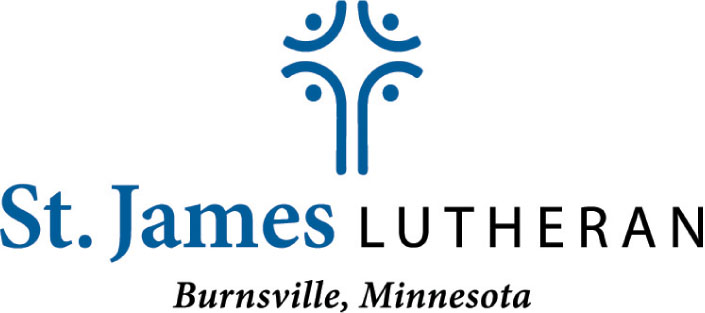How many Lutherans does it take to change a lightbulb?
Answer: Change? Why do we need to change?
I've always liked that quirky joke. As I'm coming to the completion of twenty years as an ordained pastor, I know all too well the sad truth contained within that old-but-still-relevant quip. Change is hard, particularly for Lutherans.
And yet, that is what we did on Sunday. Literally, we gathered as a whole group of Lutherans to change the lightbulbs. It was incredible. On a Sunday that is typically a low attendance Sunday for most churches, a special Congregational Meeting was held at St. James to consider whether we should install energy efficient LED lighting to replace our aging and costly incandescent bulbs. There is much to celebrate. Not only did we handsomely exceed our quorum and the project was easily approved but the meeting itself illustrated what resurrected community can look like when it gathers around basic Christ-centered values.
In the past nine years of serving St. James as pastor, I have noticed that there have been many changes -some good, some not. One of the very good changes has been a change in atmosphere. Before I even visited St. James, I heard the stories of Congregational Meetings here that were simply horrible - factions, divisions, accusations. A general distrust of leaders existed. There was a conflict that made life within this community tense and unpleasant. Over the years, through a lot of hard work by many people and the centering on core values, we have turned the corner. It is no small thing that we have moved from a spirit of malaise to one that is future thinking. It is a sign of new life and resurrection. Thanks be to God!
From Sunday's meeting, I would like to highlight just three examples of the new life that exist today at St. James:
1) Collaborative leadership. The lighting project is a good example of leadership in action that was transparent and efficient. Back in November, the idea was first brought to Council by a member. It was given consideration and a lot of behind the scenes work was done to see if this fit with our overall vision and mission. Once the new Council was elected in January, the information was deliberated by the Executive Mission before it was brought to the whole Council. More work was done that was supported by core staff. You can read about the discussions that were had in February and March in the published minutes of Council and Executive Mission Team. Once it was determined by reading the Constitution that Council lacked the authority to enter into a contract of this size, we followed our procedure for hosting a special Congregational Meeting. Information was heavily communicated through a variety of sources (letters, bulletins, weekly email updates, Facebook, and website). I remain thankful for the good collaboration of the Council, Executive Mission Team, core staff, and congregation.
2) Respect. Questions were asked and even a few concerns were raised at the meeting. This was done in a respectful manner. No one questioned the intelligence of the Council, the Executive Team, or the pastor during the discussion period. People were honored for what they brought to the proverbial table. This should all go without saying - except in a polarized culture (where public officials are defamed and slandered for their views) and during times of congregational conflict, respect is often the first value to be set aside. Differences and disagreements are healthy for community life. Because we all see the world in a unique way, it would be suspicious if we were to all agree on everything. Respect for each other and the wisdom that we each have to share is critical. It opens a door that would otherwise be closed. Healthy congregations are places where people are respected and honored for who they are and what they have to bring.
3) Forward Looking. From the Council and its officers to those who were sitting in the pews and maybe hearing of this project for the first time - I sensed that a choice was being made to look ahead. Yes, there are financial challenges that we face as a congregation. Yes, there are another whole set of challenges that are facing churches as more of the population turns away from organized religious communities. For the pessimists among us, it doesn't take much to declare that our glass is half empty (at least half of what it once was in the golden hue of memory). Unfortunately, when congregations succumb to this kind of thinking it is akin to hiding in the tomb. Easter, in contrast, inspires us to look forward and step out into the brightness of this day that we are living. As an Easter people, we give thanks to God for where we are - we own our current reality with all of its challenges and opportunities. We discern where God is leading us and we head out. Never sure of how long a particular path might be, we walk in bold confidence that we are not alone. We move forward.
So maybe a more fitting question to ask in light (pun intended) of Sunday's meeting on the Second Sunday of Easter is: how many Lutherans does it take to change the atmosphere of a congregation?
Answer: Many, many disciples of Jesus working intentionally over the course of a bunch of years. In fact, it remains a work in progress that requires each and every person who is a part of this wonderful Christ-centered community. Easter is a process of resurrection as well as a wonderful destination. As Easter people we remain well on the journey - thanks be to God!
See you in worship,
Pastor Walt

